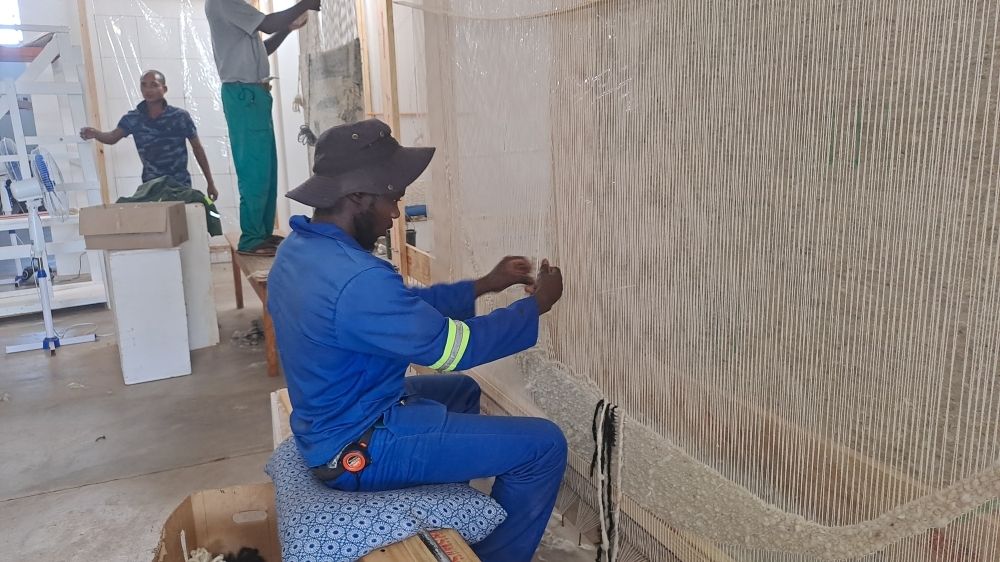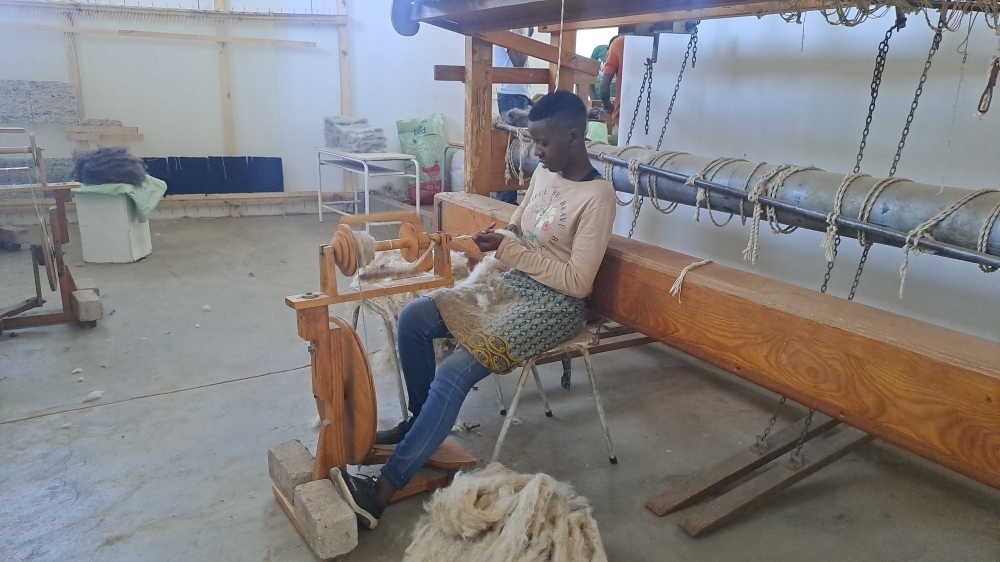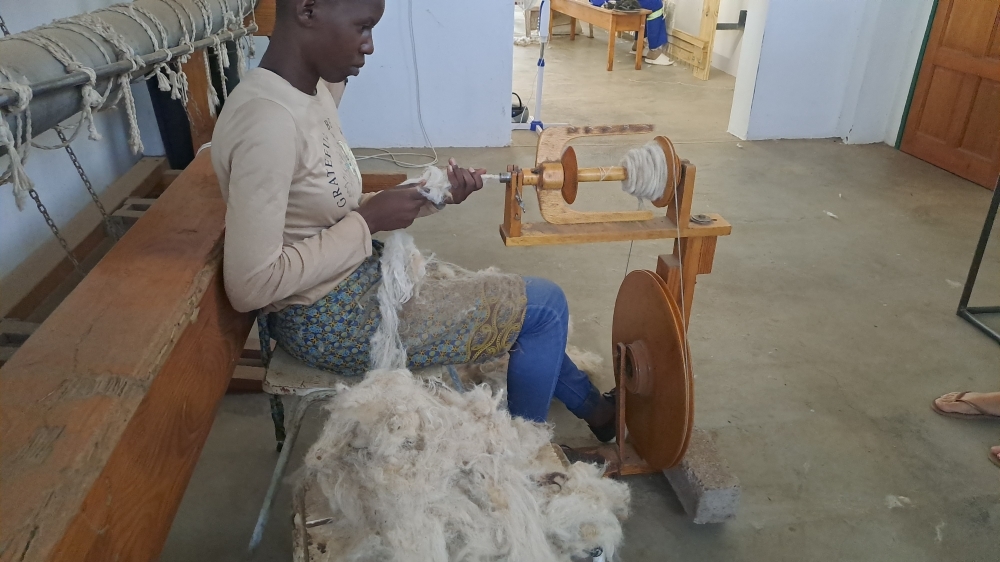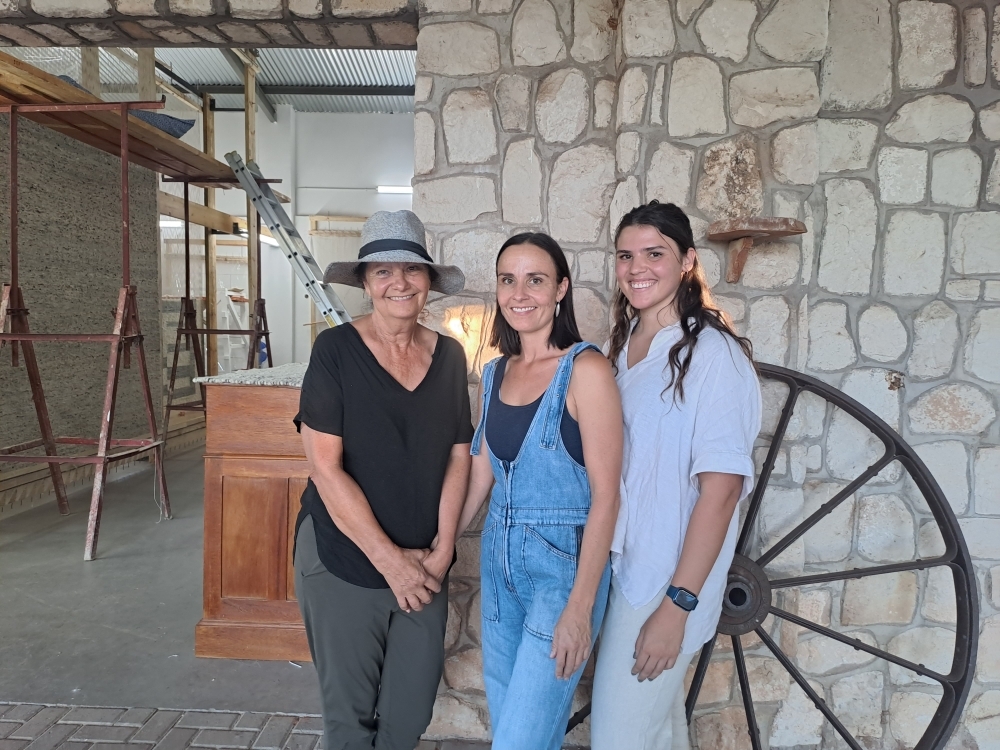A tale of tradition and economic transformation
In the heart of Stampriet in southern Namibia, the legacy of weaving is being rekindled by the Lourens family, owners of The Mill and the Historical Boutique Hotel.
Formerly known as the Stampriet Historical Guesthouse until purchased by the Lourens family last year, this establishment has become more than just a place to stay; it has become a hub of tradition, entrepreneurship and community development.
Linda Lourens, a seasoned real estate agent and owner of The Mill, proudly narrated her family’s journey into the world of weaving: “My parents were weavers. We used to live in the Karoo in South Africa and my parents imported the fleece from Namibia, so when we moved to the south of Namibia – the heart of the Swakara sheep farming community – it was a natural process to start a wool mill manufacturing wool carpets,” she said.
Lourens recalled a childhood surrounded by the essence of Karakul wool, the precursor to Swakara wool.
Reviving an ancient art
After a visit to Stampriet, where she overheard farmers discussing how they burn their Swakara wool, Lourens, driven by a desire to preserve this heritage, set out to revitalise weaving in Stampriet.
With the help of her father, she established a weaving studio and trained nearly 30 individuals in the art of weaving since their establishment last year. The staff of The Mill employ ancient Egyptian methods of handweaving, making use of the warp and weft technique.
“The skill of weaving is very transferable, and we are so happy to be contributing to job creation in the region. There have been talks of Stampriet having a 90% unemployment rate. From the farmers to the distribution in the USA, we are grateful for creating a circular economy, which is no easy feat,” Lourens noted.
International partnership
The Mill currently exports 100 square metres of carpets monthly to their partners in the United States, The Mill USA.
This not only provides a sustainable market for Swakara wool but also elevates the craftsmanship of Namibian weavers onto the global stage. Speaking on the international collaboration, Lourens said the legacy expands as her sister is based in the United States and works with designers there to gauge market needs and process orders from across the waters. “With the help of our partners in the USA, we hope to export at least 1 000 square metres monthly in the next three years,” she added.
Rene Maris, Linda's mother and the matriarch of the family's weaving legacy, reflected on the journey that began four decades ago with the founding of Aurora Handweavers. "My four little girls grew up playing in Karakul wool and the greatest joy for me is to see it happening in Namibia, creating jobs and actually working for the people of Namibia this time," she said.
Formerly known as the Stampriet Historical Guesthouse until purchased by the Lourens family last year, this establishment has become more than just a place to stay; it has become a hub of tradition, entrepreneurship and community development.
Linda Lourens, a seasoned real estate agent and owner of The Mill, proudly narrated her family’s journey into the world of weaving: “My parents were weavers. We used to live in the Karoo in South Africa and my parents imported the fleece from Namibia, so when we moved to the south of Namibia – the heart of the Swakara sheep farming community – it was a natural process to start a wool mill manufacturing wool carpets,” she said.
Lourens recalled a childhood surrounded by the essence of Karakul wool, the precursor to Swakara wool.
Reviving an ancient art
After a visit to Stampriet, where she overheard farmers discussing how they burn their Swakara wool, Lourens, driven by a desire to preserve this heritage, set out to revitalise weaving in Stampriet.
With the help of her father, she established a weaving studio and trained nearly 30 individuals in the art of weaving since their establishment last year. The staff of The Mill employ ancient Egyptian methods of handweaving, making use of the warp and weft technique.
“The skill of weaving is very transferable, and we are so happy to be contributing to job creation in the region. There have been talks of Stampriet having a 90% unemployment rate. From the farmers to the distribution in the USA, we are grateful for creating a circular economy, which is no easy feat,” Lourens noted.
International partnership
The Mill currently exports 100 square metres of carpets monthly to their partners in the United States, The Mill USA.
This not only provides a sustainable market for Swakara wool but also elevates the craftsmanship of Namibian weavers onto the global stage. Speaking on the international collaboration, Lourens said the legacy expands as her sister is based in the United States and works with designers there to gauge market needs and process orders from across the waters. “With the help of our partners in the USA, we hope to export at least 1 000 square metres monthly in the next three years,” she added.
Rene Maris, Linda's mother and the matriarch of the family's weaving legacy, reflected on the journey that began four decades ago with the founding of Aurora Handweavers. "My four little girls grew up playing in Karakul wool and the greatest joy for me is to see it happening in Namibia, creating jobs and actually working for the people of Namibia this time," she said.









Comments
Namibian Sun
No comments have been left on this article